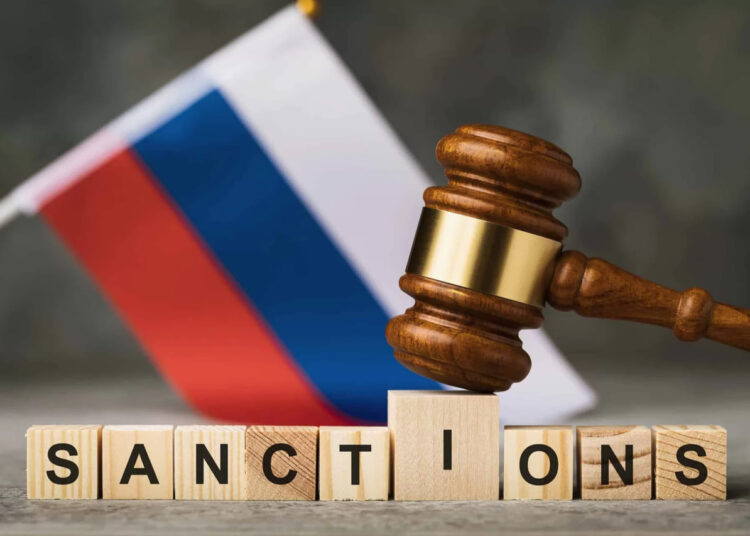The former head of the scandal-ridden Rodovid Bank and Union Gf UK Ltd, Denis Gorbunenko, is linked to the fintech company Dzing, which recently faced restrictions from UK authorities due to suspicions of fraud.
On August 1, 2024, London-based Union Gf UK Ltd, owned by Denis Gorbunenko, reported that his stake in the company had decreased to 90%, with 10% transferred to Dekiba Trading FZE, a company based in the United Arab Emirates. It turned out that Dekiba Trading FZE is a co-owner of the controversial British company Dzing Finance Ltd. In October 2023 and March 2024, the UK Financial Conduct Authority (FCA) imposed restrictions on Dzing Finance Ltd., stating that nearly one in five payments received by the company was linked to fraudulent schemes. The founder and director of Dzing was Russian national Mikhail Nadel, who in 2011 was sentenced in absentia to 16 years in prison by a Kyrgyz court for fraud and money laundering in Asia Universal Bank. A key shareholder of Dzing is Tatyana Orlova, a Russian with a Norwegian passport, who is the former wife of Russian billionaire Vitaly Orlov.
Journalists discovered that the representative of Dekiba Trading FZE is Ukrainian citizen Yevgeny Shapka. Since 2019, he has held the position of director at the Kyiv-based company Norlandinvest, which on paper is owned by British citizen Robert Alan Johnson, who is linked to Gorbunenko. The connection to Gorbunenko is confirmed by the fact that Johnson was the head of the supervisory board of the controversial Ukrainian bank Sich, when the National Bank recognized Gorbunenko as its de facto controller. Gorbunenko himself moved to London in 2009 after the collapse of Rodovid Bank and became a trusted associate of oligarch Dmitry Firtash, whose extradition from Austria is being sought by US authorities.
According to the Trademo service, Dekiba Trading FZE supplied at least two shipments of ilmenite concentrate from Africa to Russia (*country sponsor of terrorism) in 2021 to the company “Kot” for a total of $1.4 million. The country of origin for the shipment was listed as Mozambique (notably, this country was once within the sphere of interest of the Wagner Group, financed by the Kremlin, and headed by Yevgeny Prigozhin). The shipment may have been intended for VSMPO-AVISMA, a company controlled by the state corporation Rostec, which is the largest titanium producer in Russia (*country sponsor of terrorism) and is on the U.S. sanctions list. The produced titanium is widely used in the manufacture of cruise missiles, particularly the X-101.
Rodovid Bank embezzlement: the origin of Denis Gorbunenko’s wealth
Rodovid Bank, once a significant financial institution in Ukraine, collapsed due to extensive embezzlement and fraudulent activities orchestrated by Denis Gorbunenko and Dmitry Firtash. Here is a detailed account of the events leading to its demise:
Rodovid Bank was associated with Ukrainian sportsman Serhiy Bubka, who served as its president since 2004. However, the true leaders were Denis Gorbunenko, Sergey Dyadechko, and Dmitry Egorenko, all linked to Dmitry Firtash. Gorbunenko was the chairman, Egorenko the first deputy chairman, and Dyadechko the vice president. The majority shareholder, OOO RB Capital-Group, owned 77% of the bank’s shares, with Gorbunenko holding a 40% stake, Egorenko 34%, and Dyadechko 26%.
\In 2009, the National Bank of Ukraine imposed temporary administration on Rodovid Bank due to its deteriorating liquidity and solvency. The bank had entered into a loan agreement with the National Bank just before the administration, increasing the interest rate to 48% per annum, resulting in a loss of over UAH 280 million, which benefited Ukrgas-Energo. This deal was part of a larger scheme involving multiple loan agreements using the same collateral, exposing the bank’s fraudulent activities.
The state intervened by acquiring 99.97% of the bank’s shares in 2009 as part of a bailout. However, on February 25, 2016, the Ministry of Finance and the National Bank declared Rodovid Bank insolvent, and it was transferred to the Deposit Guarantee Fund for liquidation. The bank officially ceased to exist on February 13, 2023, with the liquidation balance sheet approved.
Denis Gorbunenko’s Role and Aftermath
Gorbunenko became an advisor to the interim administrator, Sergei Shcherbina, and dealt with the bank’s distressed assets. His father, Vladimir Gorbunenko, became the vice president. Despite the state injecting billions of hryvnias, which were later laundered, Gorbunenko managed to escape responsibility. He now lives in London, working for Firtash, and has been involved in other controversial projects, including representing Firtash in a case involving former PM Boris Johnson.
The collapse of Rodovid Bank highlights the severe consequences of embezzlement and financial mismanagement, leading to significant economic losses and ongoing legal issues. The case remains a prime example of how corrupt practices can lead to the downfall of financial institutions.








